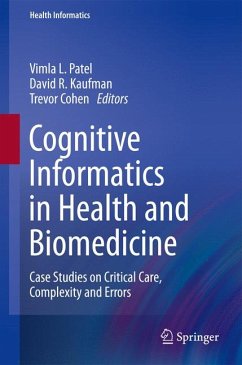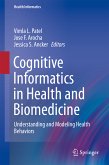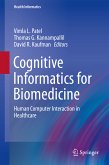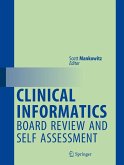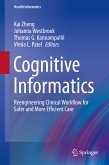Cognitive Informatics in Health and Biomedicine: Case Studies on Critical Care, Complexity and Errors focuses on the unifying themes of cognition, complexity, and the management of error in critical care practice and has been written by distinguished scholars who are leaders in their respective fields. The results reflect the interdisciplinary strengths of cognitive science, and offer a fresh insight into ways to investigate and mitigate errors and the role of health information technology in complex, dynamic environments such as the emergency room and the intensive care unit. The book will be of interest to students and a broad range of researchers in cognitive science, human factors, biomedical informatics, psychology, critical care specialists, computer science, linguists and anthropology.
Dieser Download kann aus rechtlichen Gründen nur mit Rechnungsadresse in A, B, BG, CY, CZ, D, DK, EW, E, FIN, F, GR, HR, H, IRL, I, LT, L, LR, M, NL, PL, P, R, S, SLO, SK ausgeliefert werden.
"'Cognitive Informatics in Health and Biomedicine: Case Studies on Critical Care, Complexity, and Errors' qualifies as required reading for those interested in healthcare safety and quality, for those engaged in clinical care delivery in complex settings, for those interested in understanding cognitive aspects of clinical decision-making, for future researchers investigating clinical errors, and for informaticians planning interventions to reduce the effects of errors." (Randolph A. Miller, Journal of Biomedical Informatics, Vol. 49, 2014)

